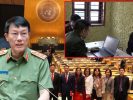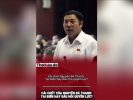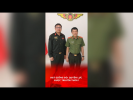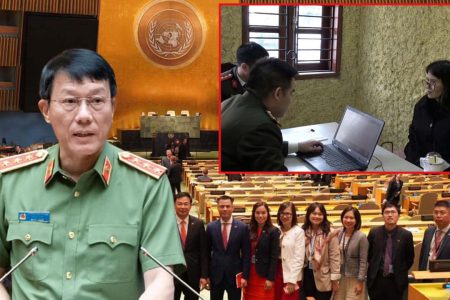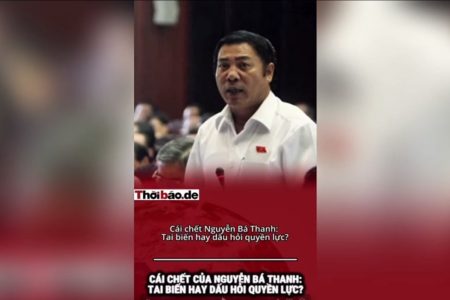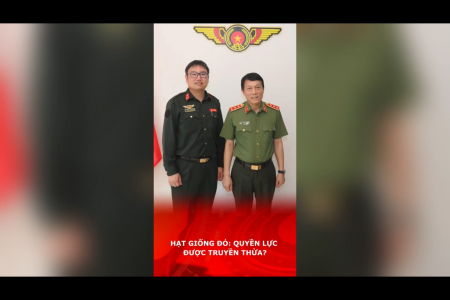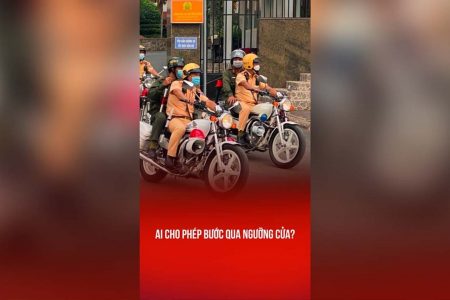The US attaches great importance to the relationship with Vietnam and for the relationship to be further consolidated, the US supports Vietnam’s highest aspirations and both sides need to be honest with the past, former ambassador Ted Osius shared.
From 2014 to 2017, in the role of US ambassador to Hanoi, he is considered to have made many contributions in strengthening relations between the two former enemies.
Leaving the position of ambassador, in November 2017, Mr. Ted Osius (born in 1961 in California), continued to stay in Vietnam and held the position of Vice President of Fulbright University Vietnam in Ho Chi Minh City until June 2018.
In recognition of Ted Osius‘ contribution, the Vietnamese state awarded him the Friendship Medal in 2018.
The book „Nothing is Impossible: America’s Reconciliation with Vietnam“ written by him is expected to be officially released in October 2021. The book is the summary of Ambassador Osius about the relationship from hostility to partnership between the two countries.
In order to clarify the assessment of Ambassador Ted Osius on Vietnam-US relations, Bui Thu of BBC News Vietnamese had an interview with him in the form of a video conversation.
Supporting Vietnam on South China Sea and Mekong River
BBC: Sir Ted Osius, how do you evaluate the relationship between Vietnam and the US, especially in the field of military cooperation?
Former Ambassador Ted Osius: I think the relationship is very good and favorable, marked by a high-level visit by a member of the Biden cabinet. In my opinion, the visit of Defense Secretary Lloyd Austin shows that the Biden administration attaches great importance to relations with Vietnam.
And the upcoming ambassador to Vietnam is an outstanding diplomat, Mr. Marc Knapper, who just had an appointment hearing before the Senate Foreign Relations Committee. It can be seen that the Biden administration has prioritized relations with Vietnam. I think that the partnership will continue to strengthen in the areas of security and economy along with some problems that exist from the past.
BBC: What is the Pentagon’s implication when choosing Vietnam as one of the first destinations of Defense Minister Austin in his new position?
Former Ambassador Ted Osius: I think it was very clear in Mr. Austin’s speech in Singapore that this is the most important region in the world and the US wants to strengthen its alliances and partnerships.
The partnership with Vietnam is very strong and he wants it even stronger. And I think he’s not just figuring out how to address past concerns, but he’s also looking to build a stronger relationship in the area of maritime security and cooperation, and what we’ve done in UN peacekeeping operations, humanitarian assistance and disaster relief.
He also made it very clear in his speech in Singapore, that „we have long sought to create space for the countries of the Indo-Pacific region to exercise their highest aspirations and protect their rights and their citizens.“ It is a powerful statement of American goals. We want to support the highest aspirations of countries like Vietnam.
BBC: So in your opinion, why has Vietnam emerged as an important partner of the US in the region?
Former Ambassador Ted Osius: It’s partly because we share a history, and we’ve spent the last 25 years coming together, moving from distrust to trusting each other more and doing a lot together. I think it comes from this shared history as well as the fact that there are so many Vietnamese-Americans in the United States, which means that they will continue to vote to give a lot of attention to reconciliation between the two countries.
There are, of course, strategic reasons. Vietnam has a long coastline. We are all concerned with peace and stability in the South China Sea. We are also committed to ensuring that Vietnam’s interests are taken into account in the management of the Mekong River. Two issues that I think the US is very supportive of Vietnam are the South China Sea and the Mekong River.
BBC: The US seems to be conducting more and more activities in the Pacific, especially through Freedom of Navigation Operations (FONOPs), while also increasing its support for Vietnam and other Southeast Asian countries in South China Sea. What effect do these activities have in maintaining stability in the face of Chinese aggression?
Former Ambassador Ted Osius: Defense Minister Austin talked about the importance of countries in the region building up their capacity, and the United States is very supportive of that capacity building, especially for Vietnam in maritime sector.
When I was an ambassador, we provided Vietnam with the largest ship in Vietnam’s Coast Guard fleet. A new coast guard vessel was also recently delivered to Vietnam.
Since my tenure, there have been two visits by US aircraft carriers to Da Nang. And I think it shows that the United States and Vietnam really do share a commitment to freedom of navigation in the South China Sea. That is an important benefit for the United States. That is also an important benefit for Vietnam.

Vietnam itself is very important
BBC: As expected, Vice President Kamala Harris will visit Vietnam in August. Could you tell me your assessment of this event?
Former ambassador Ted Osius: I am delighted to hear that there will be such a special visit. I’m so proud she’s the vice president. I’d say the more visits the better, because anyone who comes to Vietnam and spends time there will understand what I’ve come to understand, that it’s a wonderful place with great people and proud history.
When I was an ambassador, Dr. Jill Biden visited. She was the vice president’s wife at the time. And now she is the wife of the president and she loves her visit to Vietnam.
The US Secretary of Defense and Secretary of State have visited a few times and President Obama has also visited Vietnam. Everyone who comes to Vietnam feels the inspiration and expectation from what Vietnam has done.
Once Kamala Harris has a chance to visit Vietnam, I hope she feels the same way.
BBC: US Vice President visited Vietnam at the beginning of his term, does this mean that Vietnam is still a very important partner for the US?
Former Ambassador Ted Osius: Vietnam is a very important partner for the United States, no matter who visits. The visit of Minister Lloyd Austin is a sign.
It is clear to me that the Biden administration attaches great importance to Asia and that Vietnam is one of its key partners in Asia. Security is important, of course, but partnerships are much broader and more important than security. It’s a full-blown partnership, but in a way that’s meaningful beyond just the name. I would certainly encourage members of the administration to visit because I know they will be inspired and they will see opportunity with each visit.
A long time ago, until a few years ago, people still thought of Vietnam as a place of war. I think that in the past 4 years, in the United States, the image of a dynamic, beautiful and successful Vietnam has become popular.
I take the example of President Obama’s visit. When he went to eat bun cha, the president was delighted. You know, it wasn’t really staged but a great moment, when he enjoyed the simple food that Vietnamese people love.
Then, when he attended an event in Ho Chi Minh City and singer Suboi stood up to rap. She said, I’m a rapper. And he said, show me what you are capable of. And then she started rapping. You know, she’s a young and confident rapper.
I think that’s not exactly what people usually picture Vietnam, but they’ve seen that image and they’ve seen pictures of young businessmen meeting the president. Through that visit, they saw the warm welcome of millions on the streets for the president. It was a wonderful, emotional visit.
BBC: Is that why you named the book ‚Nothing is Impossible‘?
Former Ambassador Ted Osius: Yes, very simple. Pete Peterson was the first US ambassador to Vietnam after the war and the first to Hanoi. He was a prisoner of war, so he understood the pain of war. He spent many years in prison. But then he went to Vietnam and reconciled. He talked about the prosperity of Vietnam’s economy and Vietnam’s integration with the region and the world very positively.
Then he came back to celebrate the 20th anniversary of diplomatic relations and he said at a conference that: „Nothing is impossible in Vietnam-US relations.“ And I think he was right. Nothing is impossible in Vietnam-US relations, which is why I named the book after Peterson said.
Nothing is impossible does not mean that everything is easy and without challenges. But when it comes to Vietnam, nothing is impossible because the United States has a lot of involvement in Southeast Asia. It’s an area with six hundred and fifty million people. It’s an economy of more than two trillion dollars. We have a lot of business in the area. Southeast Asia is very important to the United States.
And I think people often think about Vietnam in relation to China and how that creates challenges. That’s interesting, but Vietnam itself is also important, isn’t it? Not just because of China, but because Vietnam is important. Vietnam has 100 million people. It is a dynamic developing country. And it’s part of a dynamic region that means a lot to the United States.
BBC: I am curious to know, in your book, how is the image of Vietnam as you say, as well as the better and better relationship between the two countries, mentioned?
Former Ambassador Ted Osius: My book is the story of people who turned from former enemies to friends and those who took risks on both sides.
I write about John Kerry and John McCain. The image of John Kerry is very beautiful in the book. I also wrote about the first American ambassador to Vietnam after the war, Pete Peterson.
I also write about Nguyen Co Thach, the great foreign minister who took great risks to bring the two countries closer together. And I wrote about Vietnamese officials and people who dare to take risks because they know the benefits that Vietnam will gain in a better relationship with the United States.
I think many people in Vietnam, patriots who believe in the interests of Vietnam, believe that a strong relationship with the United States will be beneficial because the United States can help in the challenges that Vietnam is facing.
The Covid-19 vaccine is an example. We have been working together to address public health challenges for a long time. American experts in Vietnam have studied HIV/AIDS and tropical diseases and now Covid.
We collaborate on education and have conducted many exchange programs. With all of that said, I truly believe it’s a true manifestation of both countries‘ understanding that partnership, not separation, helps us do more together. Therefore, we both believe in a partnership. But we must be honest with our very painful and difficult history. The only way to move forward is to be honest with the past.
Thoibao.de (Translated)

















